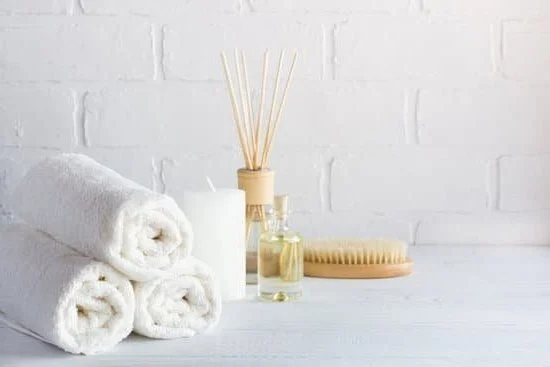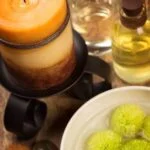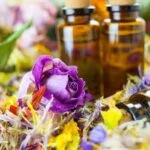Aromatherapy, the art of using scents to promote healing and well-being, has gained popularity in recent years as a natural remedy for stress relief. In today’s fast-paced world, where stress has become a common part of our daily lives, many people are turning to aromatherapy as a way to relax and find inner peace. But what exactly is aromatherapy and how can it benefit us in reducing stress?
Aromatherapy is a holistic approach to health and wellness that harnesses the power of essential oils extracted from plants. These oils contain concentrated compounds that have therapeutic effects on both the body and mind. When inhaled or applied topically, these oils stimulate our olfactory system and interact with specific receptors in our brain, triggering various physiological responses.
The benefits of aromatherapy for stress relief are numerous. Research has shown that certain fragrances can trigger the release of neurochemicals such as serotonin and endorphins, which are responsible for elevating our mood and promoting relaxation. Aromatherapy can also help regulate our hormones by reducing cortisol levels, which is known as the “stress hormone.” Additionally, certain scents have been found to have analgesic properties, helping to alleviate physical tension often associated with stress.
In this article, we will explore the science behind aromatherapy and its impact on the brain and emotions. We will delve into specific essential oils that are known for their stress-relieving properties and discuss how they can be used effectively.
From lavender, considered the ultimate stress buster in aromatherapy, to uplifting citrus scents and soothing chamomile and sandalwood essential oils – we will uncover the benefits, uses, and best practices of each fragrance. Finally, we will provide guidance on creating a personalized aromatherapy routine tailored specifically for stress relief.
Join us on this aromatic journey as we discover the power of aromatherapy in combating stress naturally. Take a deep breath, relax, and embark on a path towards greater well-being and serenity.
The Science Behind Aromatherapy
Aromatherapy is not just a pleasant smelling practice, but it also has a scientific basis for its effectiveness in relieving stress. The scents used in aromatherapy have a direct impact on the brain and emotions, making it a powerful tool for stress management.
When we smell something, the scent molecules travel through our nose and stimulate receptors that send signals to the olfactory bulb. This region of the brain is directly connected to the amygdala and hippocampus, which are involved in emotional processing and memory formation. As a result, certain scents can trigger specific emotional responses and memories.
Research has shown that different scents have different effects on the brain and emotions. For example, lavender has been found to promote relaxation and reduce anxiety, while citrus scents like lemon and orange can uplift mood and increase energy levels. Herbal fragrances such as chamomile and sandalwood are known to induce a sense of calmness and deep relaxation.
Studies have also indicated that aromatherapy can affect physiological measures of stress, such as heart rate, blood pressure, and cortisol levels. Inhalation of certain essential oils has been shown to reduce these markers of stress response, promoting a state of relaxation.
Overall, understanding the science behind aromatherapy helps us recognize its potential benefits for stress relief. By harnessing the power of specific scents, we can tap into our brain’s response mechanisms to promote relaxation, uplift mood, and combat stress effectively.
| Scents | Effects |
|---|---|
| Lavender | Promotes relaxation and reduces anxiety |
| Citrus (lemon/orange) | Uplifts mood and increases energy levels |
| Chamomile | Induces a sense of calmness and relaxation |
| Sandalwood | Promotes deep relaxation and tranquility |
Essential Oils for Stress Relief
Aromatherapy has been long known for its ability to reduce stress and promote relaxation. One of the key components of aromatherapy is the use of essential oils, which are highly concentrated plant extracts that offer a range of therapeutic benefits. When it comes to stress relief, certain essential oils have proven to be particularly effective in promoting relaxation, calming the mind, and reducing anxiety. Here are the top five fragrances known for their therapeutic effects on stress.
- Lavender: Lavender essential oil is widely regarded as the ultimate stress buster in aromatherapy. Its soothing and calming properties make it an ideal choice for promoting relaxation and better sleep. Studies have shown that lavender oil can decrease heart rate, blood pressure, and cortisol levels – all indicators of stress. Whether used in a diffuser or applied topically through massage or bath, lavender oil can help alleviate feelings of tension and anxiety.
- Bergamot: Derived from the rind of citrus fruits, bergamot essential oil is often used as an antidepressant due to its mood-boosting properties. Its delightful scent is known to enhance positive emotions, ease stress, and balance mood swings. Bergamot can be diffused at home or applied topically with a carrier oil for a calming massage experience.
- Ylang-Ylang: Known for its sweet floral fragrance, ylang-ylang essential oil has both sedative and antidepressant properties that make it effective in reducing stress and anxiety levels. This exotic oil helps to regulate heart rate, blood pressure, and improve overall mood by promoting relaxation.
- Chamomile: Chamomile essential oil is well-known for its ability to induce relaxation and aid in better sleep quality. It has anti-anxiety effects due to its natural sedative qualities that help calm both the mind and body. Chamomile oil can be diffused or added to a bath for a soothing and stress-relieving experience.
- Frankincense: With a rich woody aroma, frankincense essential oil has been historically used in religious ceremonies for its grounding and calming effects. It is known to reduce anxiety and promote relaxation by slowing down breathing and heart rate. Frankincense can be diffused or applied topically with a carrier oil to help combat stress and create a peaceful environment.
These essential oils provide natural ways to manage stress and promote relaxation. Whether used individually or blended together, they offer therapeutic effects on both the mind and body. Incorporating these fragrances into your aromatherapy routine can significantly contribute to reducing stress levels, improving overall well-being, and finding solace in the midst of a hectic lifestyle.
Lavender
Lavender is widely regarded as the ultimate stress buster in aromatherapy due to its calming and soothing properties. Used for centuries in various cultures, lavender essential oil has been scientifically proven to have a positive impact on reducing stress and promoting relaxation.
One of the key benefits of lavender essential oil is its ability to calm the mind and relax the body. The scent of lavender stimulates the brain’s limbic system, which is responsible for regulating emotions and creating a sense of relaxation. This can be particularly helpful for individuals who experience chronic stress or have difficulty winding down at night.
There are several ways to incorporate lavender essential oil into your daily routine for stress relief. One popular method is through aromatherapy diffusers or inhalers. By adding a few drops of lavender oil to these devices, you can fill your space with its soothing aroma and create a calming environment. Another option is to add a few drops of lavender oil to a warm bath or mix it with carrier oils like jojoba or almond oil for a relaxing massage.
When using lavender essential oil, it is important to follow best practices to ensure maximum effectiveness and safety. Always remember to dilute the essential oil before applying it directly onto the skin, as it can cause irritation in some individuals. It is also recommended to do a patch test on a small area of skin before using any new essential oils.
Citrus Scents
Citrus scents are known for their invigorating and refreshing qualities, making them ideal for reducing stress and promoting a positive mood. The vibrant fragrance of citrus fruits such as orange, lemon, grapefruit, and bergamot can help uplift the spirits and provide an instant energy boost. In this section, we will explore the therapeutic effects of citrus essential oils in aromatherapy and how they can be used to effectively reduce stress.
One of the key benefits of citrus scents in aromatherapy is their ability to stimulate the senses and promote a sense of well-being. The aroma of citrus fruits stimulates the production of serotonin, a neurotransmitter that is responsible for regulating mood and emotions.
By increasing serotonin levels in the brain, citrus scents can help alleviate symptoms of anxiety, depression, and stress. Additionally, citrus essential oils have been found to have anti-inflammatory properties that can help reduce tension in the body and relieve stress-related muscle pain.
The top five citrus essential oils recommended for stress reduction include:
- Orange oil: Known for its uplifting and calming effects on the mind, orange oil promotes relaxation and relieves anxiety.
- Lemon oil: With its refreshing scent, lemon oil is excellent for improving concentration and boosting energy levels.
- Grapefruit oil: This invigorating oil helps reduce mental fatigue, uplifts mood, and enhances feelings of positivity.
- Bergamot oil: A popular choice in aromatherapy, bergamot oil has powerful antidepressant properties that can help reduce stress and promote emotional balance.
- Mandarin oil: Known for its soothing qualities, mandarin oil helps calm the nervous system and promotes restful sleep.
To fully experience the benefits of citrus aromatherapy for stress reduction, there are several methods you can try. Diffusing these essential oils in a room using an aromatherapy diffuser is a popular and effective method. You can also mix a few drops of citrus oil with a carrier oil and use it for a relaxing massage or add it to your bathwater for a rejuvenating soak.
Herbal Remedies
In addition to essential oils, herbal fragrances have long been used in aromatherapy to combat stress and anxiety. These natural remedies offer a holistic approach to relaxation and can be used in a variety of ways. Whether it be through inhalation, topical application, or adding them to bathwater, herbal fragrances provide an effective solution for stress relief.
The Benefits of Herbal Fragrances
Herbal fragrances derived from plants such as chamomile, jasmine, and rosemary have been found to have calming effects on the mind and body. These scents have the power to uplift mood, reduce tension, and promote feelings of relaxation. Scientific research has shown that specific herbs contain chemical compounds that interact with receptors in our brain, triggering the release of neurotransmitters such as dopamine and serotonin which are responsible for regulating mood.
Popular Herbal Remedies for Stress Relief
- Chamomile: Chamomile is well-known for its calming properties and is commonly used in teas and essential oil blends. This herb has been shown to relieve anxiety symptoms by promoting a sense of calmness and helping with sleep disorders.
- Lavender: While lavender is primarily known for its role in aromatherapy for stress relief (as discussed in another section), it also falls under the category of herbal remedies. It has been used for centuries to promote relaxation, ease tension headaches, and improve sleep quality.
- Rosemary: Rosemary is not only a delightful culinary herb but also possesses properties that can help alleviate stress. Its scent has been found to reduce cortisol levels (a stress hormone) in the body when inhaled or applied topically.
These are just a few examples of herbal remedies that can effectively combat stress and anxiety when incorporated into an aromatherapy routine. However, it’s important to remember that everyone’s response to these fragrances may vary, so it’s essential to experiment and find the scents that work best for individual needs.
Unwind and Relax
Chamomile and sandalwood essential oils are two powerful fragrances that have been used for centuries to promote relaxation and deep calm. These oils can be incredibly effective when it comes to reducing stress and anxiety, creating a peaceful atmosphere, and promoting a restful night’s sleep.
Chamomile essential oil, often made from the flowers of the chamomile plant, is well-known for its calming properties. It has a gentle, sweet scent that can help soothe both the mind and body. This oil has been used for centuries in traditional medicine as a remedy for insomnia, anxiety, and stress. Chamomile essential oil can be diffused in your home or added to bathwater for a relaxing soak before bed.
Sandalwood essential oil comes from the wood of the sandalwood tree and has a rich, woody aroma that is both grounding and uplifting. It is often used in aromatherapy to calm the mind and create a sense of inner peace. Sandalwood essential oil can be incorporated into your daily self-care routine by applying it topically to pulse points or using it in massage oils or lotions.
Incorporating chamomile and sandalwood essential oils into your aromatherapy routine can offer powerful relief from stress and promote deep relaxation. Whether you choose to diffuse these oils, use them in massage blends, or enjoy their benefits during an aromatherapy bath, they can provide a natural solution for finding calm amidst the chaos of daily life.
Creating Your Personalized Aromatherapy Routine
Creating a personalized aromatherapy routine is an effective way to harness the benefits of essential oils for optimal stress relief. By mixing and blending different oils, you can create a unique combination that suits your individual needs and preferences. Here are some guidelines to help you create your personalized aromatherapy routine.
Understanding the Properties of Essential Oils
Before you start mixing and blending oils, it’s important to understand the properties of each essential oil. Different oils have different therapeutic effects on the body and mind. For example, lavender oil is known for its calming properties, while citrus oils like lemon and orange are uplifting and energizing. By familiarizing yourself with the properties of different oils, you can choose those that target specific symptoms or emotions associated with stress.
Mixing Essential Oils
Once you have chosen your desired essential oils, it’s time to start mixing them together. You can use a variety of methods to mix oils, depending on your preferences and resources. One popular method is using a diffuser, which disperses the scent of the oils into the air. You can also create a blend by adding a few drops of each oil into a carrier oil such as coconut or jojoba oil.
Blending Essential Oils
Blending essential oils involves combining different scents to create a harmonious aroma. This can be done by following specific ratios or experimenting with different combinations until you find one that suits your preferences. A common ratio for blending is 30% top note (lighter or more volatile fragrance), 50% middle note (medium strength fragrance), and 20% base note (long-lasting fragrance). However, feel free to adjust these ratios based on your personal preference.
By creating your personalized aromatherapy routine through mixing and blending essential oils, you can tailor the scents to your liking while maximizing the therapeutic effects for stress relief. Experiment with different combinations and ratios to find what works best for you. Remember to use high-quality, pure essential oils and follow safety guidelines to ensure a positive and effective aromatherapy experience.
Aromatherapy Techniques for Stress Relief
Aromatherapy offers a variety of techniques to help relieve stress, and diffusion, massage, and inhalation methods are among the most popular and effective. These techniques allow individuals to experience the therapeutic benefits of essential oils in different ways, catering to personal preferences and needs.
Diffusion is one of the most common methods used in aromatherapy for stress relief. It involves dispersing essential oils into the air through various devices such as diffusers or nebulizers. These devices release micro-particles of essential oil into the air, allowing individuals to breathe in the scent and experience its calming effects. Diffusing essential oils not only enhances mood but also purifies the air by killing airborne pathogens, creating a peaceful environment that promotes relaxation.
Massage is another powerful technique used in aromatherapy for stress relief. When combined with essential oils, massage can provide immense physical and mental relaxation. The use of specific essential oils during a massage helps to reduce muscle tension and promote tranquility.
The essential oils are usually diluted in a carrier oil such as jojoba or sweet almond oil before being applied to the skin. The therapist then uses various strokes and techniques to spread the oil across the body, allowing both the scent and properties of the oil to be absorbed through the skin.
Inhalation methods using aromatic substances have been practiced for centuries as an effective means of stress relief. Direct inhalation involves placing a few drops of essential oil onto a tissue or using an inhaler device specifically designed for aromatherapy purposes. By inhaling deeply, individuals can directly enjoy the soothing aroma of essential oils which quickly reaches their limbic system – the part of our brain responsible for controlling emotions – triggering relaxing responses.
By utilizing these aromatherapy techniques – diffusion, massage, and inhalation methods – individuals can effectively combat stress and achieve optimal relaxation. Whether it’s filling a room with the calming scent of essential oils, experiencing the benefits through a therapeutic massage, or simply inhaling the aroma directly, these methods can help create a stress-free environment and provide a sense of wellness and calmness.
Experimenting with different techniques and finding what works best for you will ensure a personalized and fulfilling aromatherapy experience.
Safety Tips and Precautions
Aromatherapy can be a wonderful tool for stress relief, but it is important to take precautions to ensure a positive and harm-free experience. Here are some safety tips and precautions to keep in mind when using aromatherapy for stress relief:
Use High-Quality Essential Oils
When practicing aromatherapy, it is essential to use high-quality essential oils. Look for oils that are pure, organic, and preferably derived from plants that have been grown without the use of pesticides or other harmful chemicals. Be cautious of synthetic fragrances or diluted oils, as they may not have the same therapeutic benefits.
Dilute Essential Oils Properly
Essential oils are highly concentrated and should never be applied directly to the skin without proper dilution. Always mix essential oils with a carrier oil, such as jojoba oil or sweet almond oil, before applying them topically. The recommended dilution ratio is typically 2-3 drops of essential oil per teaspoon of carrier oil.
Perform Patch Tests
Before using a new essential oil, it is important to perform a patch test on a small area of your skin first to check for any adverse reactions or allergies. Apply a small amount of diluted oil to the inside of your forearm and wait at least 24 hours to see if any redness, itching, or irritation occurs.
Avoid Ingesting Essential Oils
While some essential oils are safe for internal use under the guidance of a qualified professional, most should not be ingested orally. Ingesting certain essential oils can be toxic and cause severe health complications. Stick to using them externally or through inhalation methods like diffusion.
Keep Essential Oils Out of Reach
It is important to keep essential oils out of reach of children and pets. While essential oils can provide numerous benefits, they can be harmful if ingested or applied inappropriately. Store your essential oils in a cool, dark place and make sure the bottles are tightly sealed to prevent spills or accidents.
By following these safety tips and precautions, you can ensure a positive and harm-free aromatherapy experience for stress relief. Remember that everyone reacts differently to essential oils, so it is important to listen to your body and discontinue use if you experience any adverse reactions.
Case Studies and Testimonials
Aromatherapy has gained popularity as a natural and effective solution for stress relief. Many individuals have experienced the benefits of aromatherapy firsthand, finding solace from their daily stresses through the use of essential oils. In this section, we will explore some real-life case studies and testimonials from people who have found stress relief through aromatherapy.
One such case study is that of Sarah, a working professional who often found herself overwhelmed with stress and anxiety. After incorporating aromatherapy into her self-care routine, she noticed a significant improvement in her overall well-being. Sarah would diffuse lavender essential oil in her office during stressful workdays, allowing the soothing aroma to permeate the air and create a calm atmosphere.
She also used chamomile essential oil before bedtime to promote relaxation and better sleep. Through these practices, Sarah found that her stress levels decreased and she felt more centered and balanced throughout the day.
Another individual, John, struggled with managing his stress due to his demanding job as an executive. He turned to aromatherapy as a way to find some relief from his hectic lifestyle. John discovered that citrus scents like lemon and orange helped uplift his mood and provide him with an energy boost when he felt fatigued or overwhelmed at work.
He would keep a bottle of citrus essential oil blend on his desk for inhalation whenever he needed a quick pick-me-up. The fresh and invigorating aroma helped him regain focus and take on tasks with renewed vigor.
These case studies are just two examples among many of individuals finding stress relief through aromatherapy. Countless testimonials from people all over the world attest to the power of scent in promoting relaxation, reducing anxiety, and improving overall well-being.
It is important to remember that while these stories offer hope for those seeking stress relief, each person’s experience may vary. Aromatherapy is a personal journey, and it may require some experimentation to find the scents and practices that work best for each individual.
As we delve into the case studies and testimonials of those who have experienced the benefits of aromatherapy, it becomes clear that this natural remedy has the potential to provide relief from stress and anxiety. These real-life stories serve as inspiration for individuals seeking a holistic approach to managing their stress levels. By incorporating essential oils into their daily routines, people are finding comfort, relaxation, and a renewed sense of calm amidst the chaos of everyday life.
Conclusion
In conclusion, aromatherapy has proven to be a powerful and effective solution for managing stress. The science behind aromatherapy reveals that scents have a direct impact on the brain and emotions, making it an ideal tool for promoting relaxation and reducing anxiety. The top five essential oils for stress relief – lavender, citrus scents, herbal remedies like chamomile and sandalwood – offer specific therapeutic effects that can help individuals find inner calm and balance.
Creating a personalized aromatherapy routine is key to optimizing its stress-relieving benefits. By mixing and blending oils, individuals can tailor their experience to their unique preferences and needs. Whether through diffusion, massage, or inhalation methods, incorporating aromatherapy techniques into daily life can provide ongoing support in combating stress.
It is important, however, to keep safety precautions in mind when using essential oils. Adhering to proper dilution ratios and ensuring quality oils are used are critical steps in ensuring a positive and harm-free experience. It is also worth noting that while aromatherapy may not work the same way for everyone, there are numerous case studies and testimonials that highlight how individuals have found relief from stress through this natural healing modality.
In today’s fast-paced world where stress has become all too common, embracing the power of aromatherapy offers a gentle yet effective approach to finding tranquility amidst chaos. By incorporating this practice into our lives, we can tap into nature’s abundant resources to promote overall well-being. So why not explore the world of aromatherapy – it just might be the natural remedy you’ve been searching for to conquer your stress once and for all.
Frequently Asked Questions
What essential oil is best for stress?
Lavender essential oil is often considered the best essential oil for stress relief. It is renowned for its calming properties and ability to promote relaxation. Lavender oil has been shown to help reduce anxiety and improve sleep quality, making it an effective remedy for stress-induced conditions.
Its soothing aroma can help to create a peaceful environment, allowing the mind and body to unwind and release tension. Whether used in a diffuser, added to a bath, or applied directly on the skin, lavender essential oil can provide much-needed relief from stress.
What aromatherapy is good for anxiety?
When it comes to aromatherapy for anxiety, one of the most beneficial options is chamomile essential oil. Chamomile has long been recognized for its calming effects on both the mind and body. This gentle floral scent can help ease feelings of restlessness, nervousness, and unease commonly associated with anxiety.
Inhaling chamomile oil or using it in a massage blend can contribute to relaxation while promoting a sense of tranquility. Aromatherapy with chamomile essential oil may be especially helpful before bedtime to support a calm state of mind.
What smells help relieve stress?
There are several smells that can help relieve stress by promoting relaxation and reducing tension in both the mind and body. One of these smells is citrus, such as lemon or orange scent, which has uplifting properties that can boost mood while reducing stress levels. The crisp aroma of eucalyptus also offers stress-relief benefits by clearing the mind and providing a refreshing sensation.
Additionally, the warm and comforting scent of vanilla has been known to have soothing effects on feelings of anxiety or stress. Other calming scents include lavender, bergamot, ylang-ylang, and jasmine which all work together to create an atmosphere conducive to relaxation and stress reduction

Are you looking for a natural way to improve your health and wellbeing?
If so, aromatherapy may be the answer for you.





